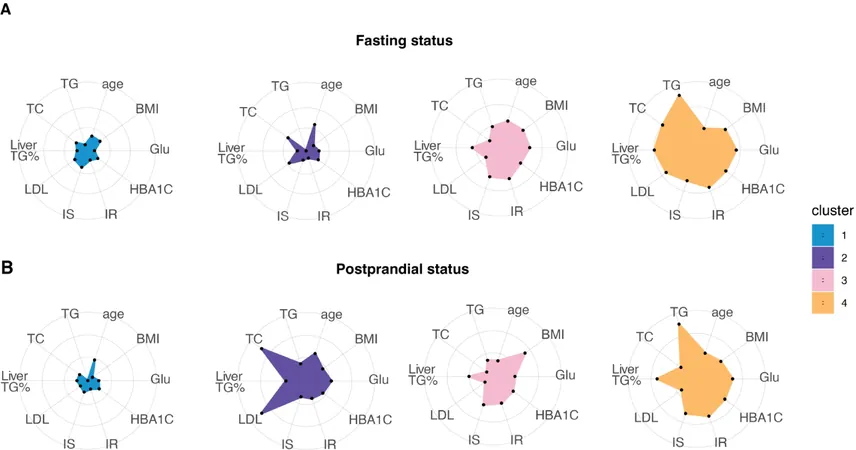
Unlocking the Secrets of Metabotypes: Your Diet Could Be Key in Preventing Type 2 Diabetes!
2025-07-08
Author: Yu
Groundbreaking Findings from the NEO and UK Biobank Studies
In a game-changing exploration of metabolic health, researchers have identified distinct metabotypes linked to the incidence of type 2 diabetes (T2DM) using cutting-edge fasting and postprandial metabolomics. This comprehensive analysis utilized data from the NEO study and the extensive UK Biobank, encompassing thousands of participants to unearth crucial dietary insights.
Who Took Part?
The transformative NEO study recruited over 5,300 individuals free from T2DM, meticulously excluding those with prior diagnoses and ensuring accurate fasting protocols. The UK Biobank, which sampled around 4469 individuals aged 40-69 from a diverse background, offered a validation cohort for these groundbreaking findings. Together, these studies form a treasure trove of information on obesity-related diseases.
Nailing Down Metabolomics
Using a high-throughput 1H-NMR metabolomics platform, researchers analyzed more than 140 metabolites from plasma samples. Not only were fasting and post-meal samples assessed, but the findings highlighted the reliability of the methods through rigorous quality checks.
Discovering the Metabolic Clusters
Through unsupervised clustering techniques, four distinct metabotypes were unveiled, varying significantly in their metabolic profiles across fasting and postprandial states. This innovative use of the k-means algorithm helped categorize individuals based on their metabolic health, making it easier to draw associations with T2DM risk.
Metabotypes and Diabetes Risk: What’s the Link?
Following nearly seven years of follow-up, results were striking! Metabotype 4 individuals exhibited the highest rates of developing T2DM, attributed primarily to unfavorable metabolic characteristics. In stark contrast, those in metabotype 1 displayed a more favorable profile, shedding light on the critical importance of metabolic health.
Dietary Patterns That Matter
Interestingly, the analysis revealed a strong correlation between metabolic profiles and dietary habits. Participants in high-risk metabotypes had lesser adherence to recommended dietary patterns, emphasizing the role of nutrition in managing diabetes risk. Focusing on healthier diets rich in fruits, vegetables, and whole grains could provide a path forward.
A Call for Nutritional Intervention
These revelations pave the way for targeted dietary interventions tailored to an individual's metabotype. Such personalized nutrition could significantly impact public health strategies aimed at T2DM prevention.
Looking Ahead: More Research Needed!
While the findings provide compelling insights, further research is essential to explore the causal relationships between metabotypes and T2DM risk. If these associations are confirmed, they could reshape our approach to diabetes prevention strategies globally.
Final Thoughts: Metabolic Understanding is Key
With these exciting developments, understanding one's metabolic profile might soon become as vital as routine health check-ups, equipping individuals with essential knowledge to tailor their diets and reduce the risk of type 2 diabetes.
 Brasil (PT)
Brasil (PT)
 Canada (EN)
Canada (EN)
 Chile (ES)
Chile (ES)
 Česko (CS)
Česko (CS)
 대한민국 (KO)
대한민국 (KO)
 España (ES)
España (ES)
 France (FR)
France (FR)
 Hong Kong (EN)
Hong Kong (EN)
 Italia (IT)
Italia (IT)
 日本 (JA)
日本 (JA)
 Magyarország (HU)
Magyarország (HU)
 Norge (NO)
Norge (NO)
 Polska (PL)
Polska (PL)
 Schweiz (DE)
Schweiz (DE)
 Singapore (EN)
Singapore (EN)
 Sverige (SV)
Sverige (SV)
 Suomi (FI)
Suomi (FI)
 Türkiye (TR)
Türkiye (TR)
 الإمارات العربية المتحدة (AR)
الإمارات العربية المتحدة (AR)